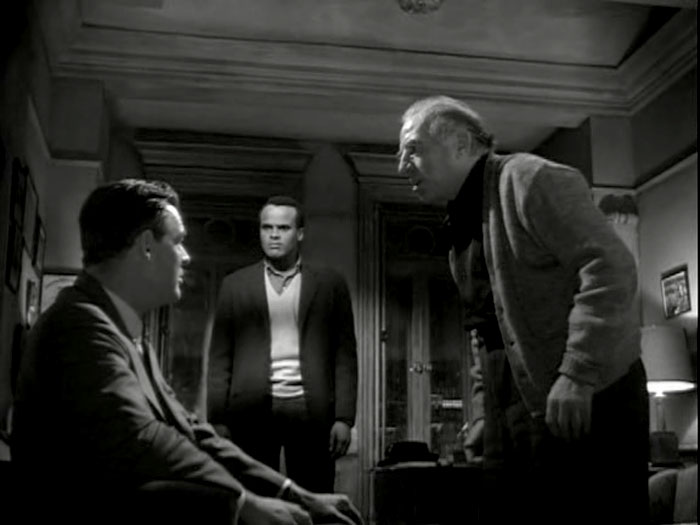
Directed by Robert Wise
35 mm black-and-white film
96 minutes
HarBel Productions
Odds Against Tomorrow is a riveting film noir. Melodramatic yet believable, it is one of the most progressive “race movies” of its time. Shot in stark black-and-white, it stars Harry Belafonte and Robert Ryan as unwilling partners in a bank robbery. Its haunting outdoor scenes were shot in New York City and Hudson, New York. John Lewis of the Modern Jazz Quartet composed its edgy score. The script is based on a novel by William P. McGivern, and was adapted by blacklisted screenwriter Abraham Polonsky, under the name John O. Killens, the latter a writer and co-founder of the Harlem Writers Guild whose own radicalism escaped detection by the House Un-American Activities Committee. (The Writers Guild of America restored Polonsky’s credit in 1996.)
Everything unravels in classic film noir style when David Burke (Ed Begley), ex-cop gone bad makes the mistake of including the bigoted Earle Slater (Ryan) in his plot, along with an African American gambler (Belafonte) hard up for money. The combination results in disaster almost immediately and ends in chaos. The prospect of working alongside a black man is too much for Slater, who loses his cool—as he is consumed by rage and resentment—even at the expense of sabotaging the robbery and forfeiting his $50,000 share of the heist. In contrast to The Defiant Ones, a comparable, trailblazing film that foregrounded the tension between interracial male characters, Odds Against Tomorrow is more confrontational in its approach to the subject of prejudice. Its uncompromising representation of the brutality and destructiveness of racial hatred outside the South was unparalleled in mainstream films of the 1950s.
Michele Wallace